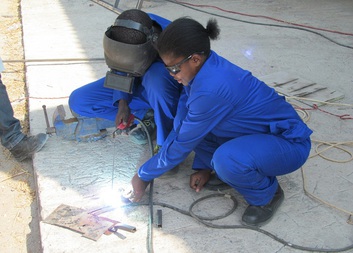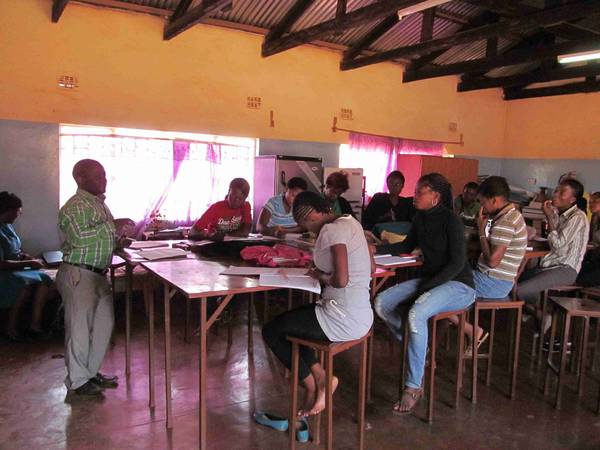Thirty-eight students from Meheba refugee camp began in Semptember to attend two technical schools in Solwezi. Young people from Angola and Zambia study metal production, carpentry, tailoring and cookery. With these new skills, they have the opportunity to subsequently start earning income and support their families.
All students were chosen by Charity Czech Republic (CCR) within the education support programme for Angolan refugees who fled and live in a camp named Meheba. Nineteen-year-old Precious Kapumba Musole is one of the supported currently studying tailoring. Although Angolan, she was born in Zambia and has lived in the camp since her birth. She is the second youngest of five siblings. She lives with her parents, brothers and sisters in a small house of bricks with a straw roof. Precious is the only one to finish high school, but still she cannot pay fees for the exams she didn’t pass.
Her parents and siblings grow maize and casava in a one-hectare field. Their sale make the only family income. Precious dreams of opening her own bussiness or finding a well-paid job thanks to the tailoring course so she could support her family and began studies to become a teacher.
Due to the tuition costs and long distance the vast majority of poor families from the Meheba camp cannot afford to send their children to school in Solwezi, more than a hundred kilometers distant. CCR believes that thanks to the funds provided by the United Nations High Commissioner for Refugees (UNHCR) the conditions for Precious and at least 37 craft course participants’ families will be improved.
to send their children to school in Solwezi, more than a hundred kilometers distant. CCR believes that thanks to the funds provided by the United Nations High Commissioner for Refugees (UNHCR) the conditions for Precious and at least 37 craft course participants’ families will be improved.
Studies for future tailors, cooks or chefs, metal manufacturers and carpenters will run for six months. In addition to the craft learning they will also undergo training on entrepreneurship. After passing the exams in April 2015, successful graduates should get small initial capital, so they can start their own workshops and shops.
Young people in Zambia usually work in the field of agriculture, which employs up to 71% of the workforce. Even in Meheba camp there are only little opportunities to get a job outside of growing crops, although there is demand for other services. Moreover, it is five times harder for young people than for those people in middle-age to find a job in the Zambian labor market. The reason is the lack of knowledge in crafts or ignorance in matters of business. The initial capital also is missing.
There is a potential labor market in Meheba, but it lacks a skilled workforce. Students are thus necessary artisans contributing to the development of non-agricultural production in the area. CCR pays their dormitory accommodation for two semesters, travel expenses, monthly allowances for food and basic tools for various technical fields. CCR also ensures the necessary courses, and through business loans provides to successful graduates the tools and materials to get started. A similar program also provides support for 38 young people in the camp Mayukwayukwa in Western Province of Zambia.









